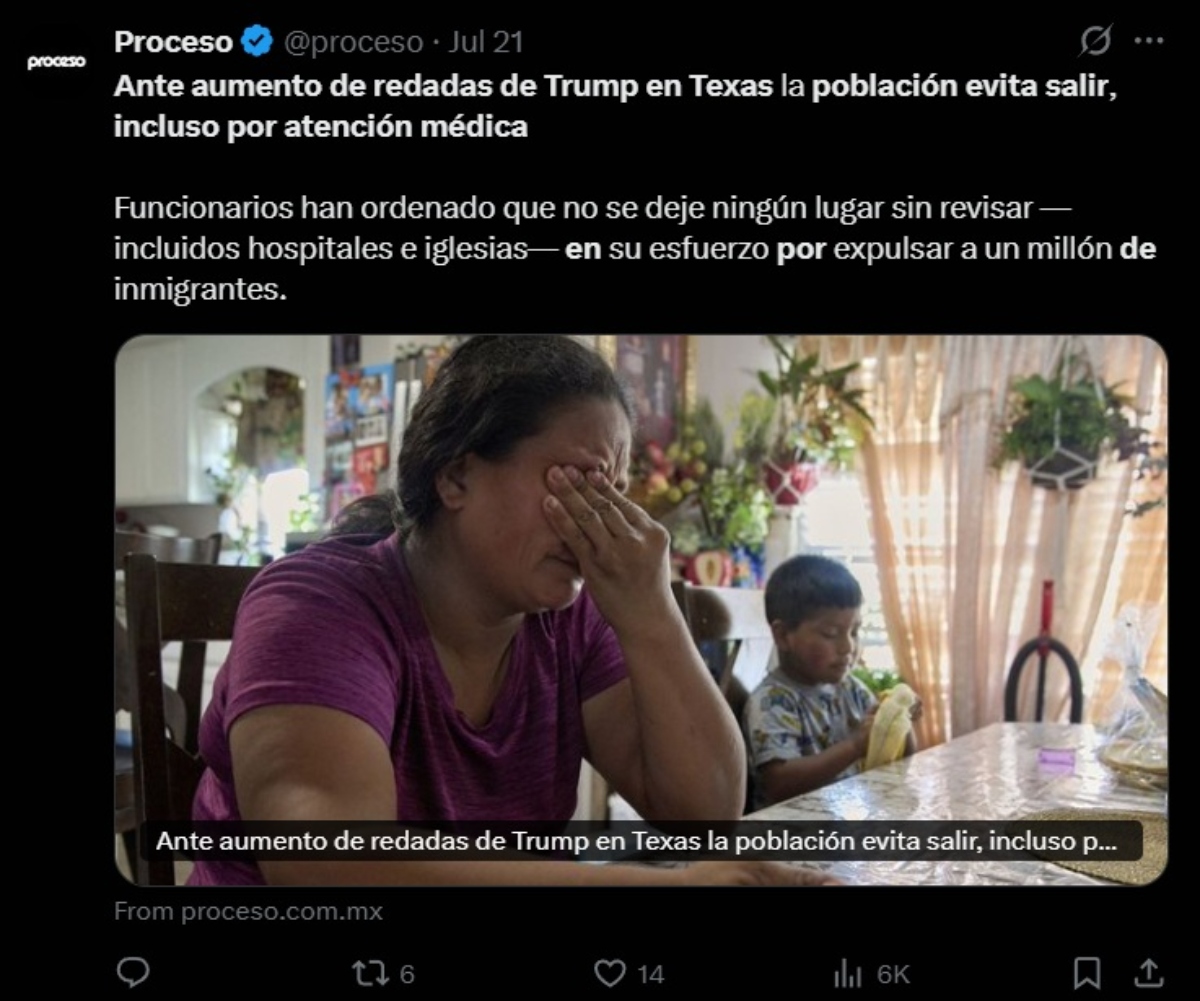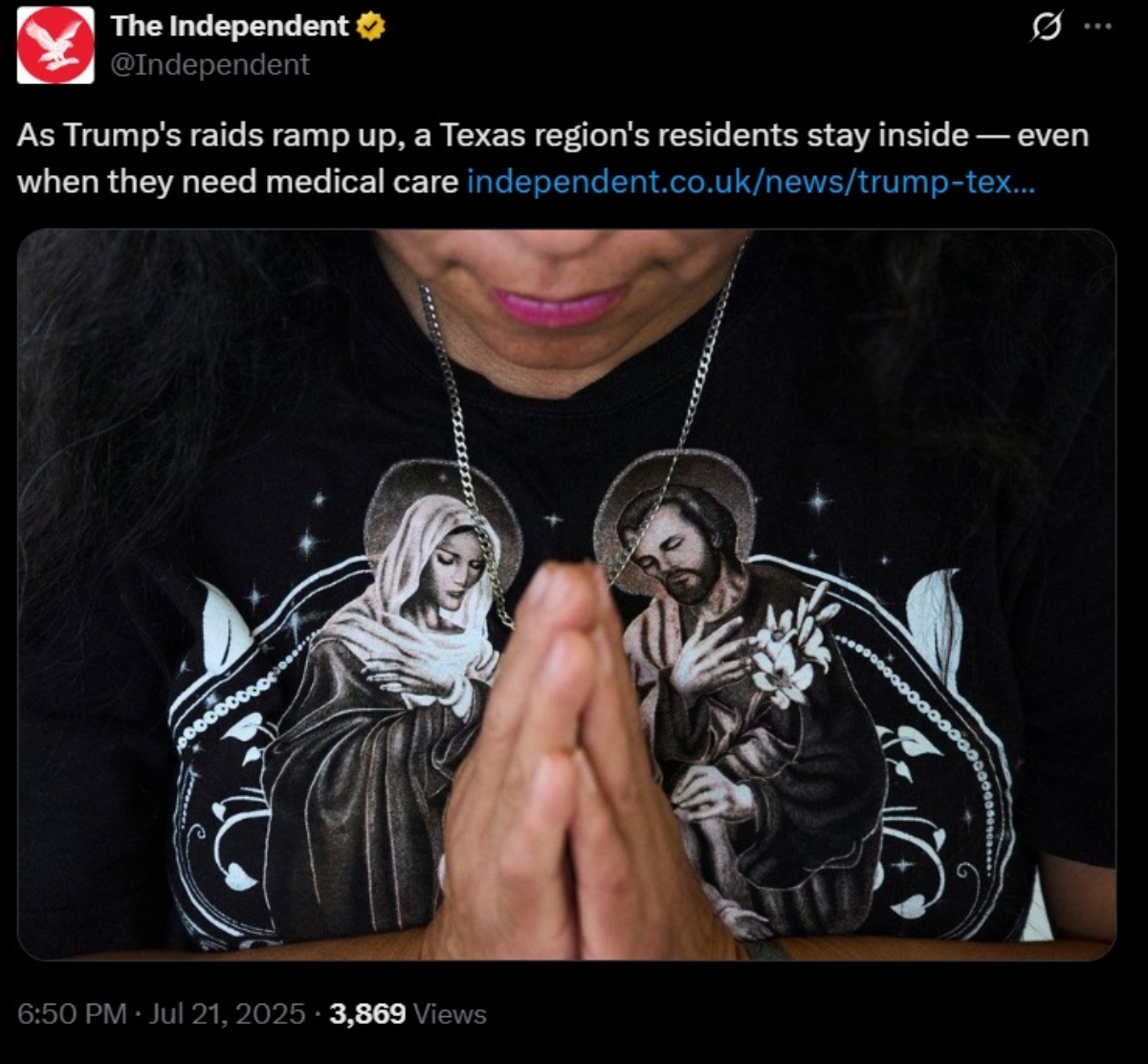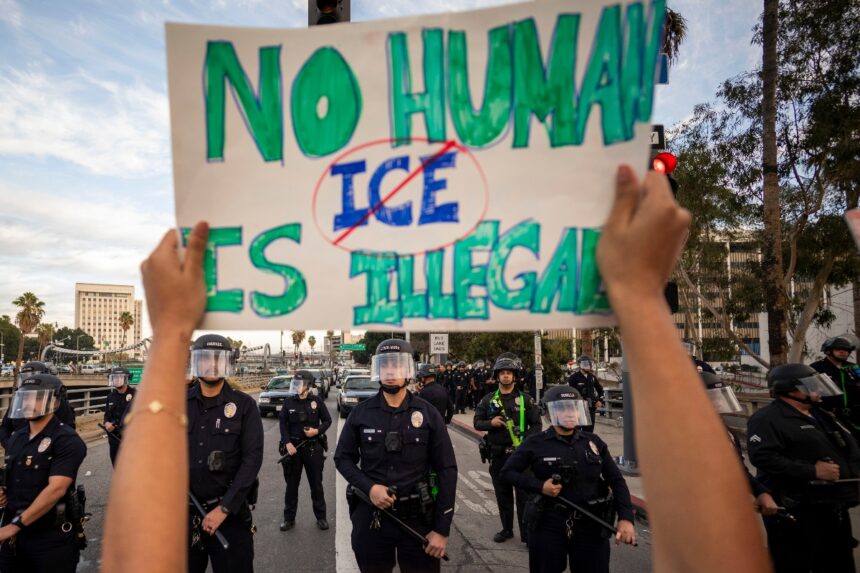The beefing up of immigration raids under the Donald Trump administration in 2025 has generated a widespread atmosphere of fear among Hispanic communities in South Texas, especially in the Rio Grande Valley, a Latino-majority region where thousands of undocumented immigrants have stopped going to essential medical appointments for fear of being detained.
Cases like that of Juanita, a pre-diabetic mother of a daughter with a disability, reflect an alarming reality: avoiding a visit to the pharmacy for fear of ICE can mean putting the family’s life or health at risk. And this is not an isolated case. Community clinics like Holy Family Services in Weslaco report a drastic decline in patient attendance, even those with health insurance such as Medicaid. “People stopped coming. They’re afraid of being arrested,” says Sandra de la Cruz-Yarrison, the clinic’s director.
Massive deportations affect public health

Since June 2025, federal agents have intensified raids, including on churches, hospitals and local markets.
The White House itself has ordered the use of federal databases such as Medicaid and CHIP to track immigrants.
A policy that has generated rejection among human rights advocates and medical professionals.
“This situation is very dangerous. The population is suffering,” warns Dr. Stanley Fisch, a pediatrician at Driscoll Children’s Hospital.
He also points out that chronic diseases such as diabetes or cancer are now complicated by lack of timely medical attention.
Texas, one of the states with the largest uninsured population, faces worsening public health indicators, especially among women, the elderly and children.
Stories that reflect a human crisis

Cases like that of Maria Isabel, whose son delayed going to the hospital for fear of ICE until his appendix burst, are repeated in the testimonies of many families, in this case in Texas.
Others, like Maria, have stopped working and attending medical appointments for fear of arrest, while their children spend the summer locked up and without access to basic services.
Despite being legal residents, many avoid enrolling their children in programs such as Medicaid for fear of retaliation.
We're not bad people. We just want a better future for our children
María
For more information, visit QuéOnnda.com.














